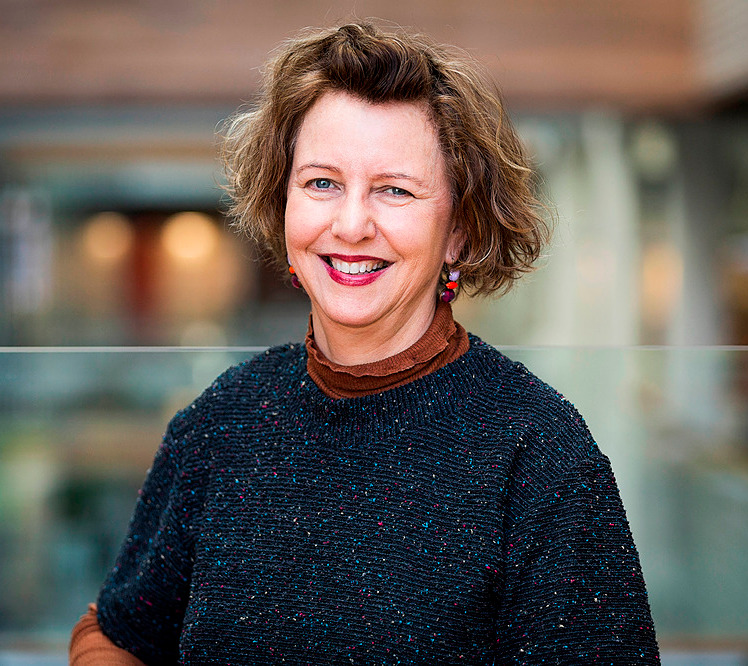Join us for the launch of UTS CREDS: Trust, Truth, and Knowing through the Pandemic - The Digital Learning Challenge
Event description
Learning and technology have been defining features of our global pandemic responses.
As we continue to navigate COVID-19 and other complex problems of sustainability, we must ask some fundamental questions and seek out new solutions. Join us for this special event to celebrate the launch of UTS CREDS, discussing:
- How do we navigate truth, trust, and knowledge, digitally through crises like a pandemic?
- What role does digital technology play in spreading low quality information, or promoting high quality evidence and discourse?
- How do people understand their own and others' knowledge, and its limitations, in uncertain and changing environments?
- What critical literacy learning needs has the pandemic highlighted?
- And how might digital technologies address these learning needs?
The pandemic has brought into stark relief how engagement with evidence and science, digital and social media, and public health systems intersect, to shape our views and activity. Society has witnessed the central role of education and learning in terms of understanding gaps in knowledge, and how to support citizens to learn effectively, in order to navigate trust, truth, and knowing.
Digital technologies are intertwined with this learning. They shape our education needs, how we navigate trust on social media, understand complex data, and engage with critical and creative thinking when learning and work are conducted from home. They also offer opportunities, for understanding these learning needs, sharing knowledge, building trust in communities, and technology enhanced teaching to engage with new complex information and data.
Join us in our first public conversation to launch the Centre for Research on Educational in a Digital Society (CREDS) in the Faculty of Arts & Social Sciences at UTS.
About CREDS
Read more about CREDS, our research, and our members on our website. In brief, we investigate learning technologies, and the role of technology and data in learning, developing methods to evaluate this impact. We explore
the dynamic relationship between technology and learning – across
formal, informal, and professional education contexts throughout the
lifespan – reflecting that how we learn (with technology) is
fundamentally intertwined with what we learn (about technology). Our research interrogates the new ways in which technologies enhance learning, and the changing learning needs of a digital society.
Invitation: CREDS Launch Panel Discussion
Event date: Monday 22 November, 5-30-6.30pm.
Register to secure your spot.
By registering participants will also gain access to – and be invited to provide input into – a draft account, framing the centre’s response to the digital learning challenge of trust, truth, and knowledge through the pandemic.
Members of the centre will be online for this public conversation and our first event features a panel of respected researchers who will bring a range of views to the discussion including time for Q&A.
The event will be recorded. For those who like to tweet the hashtag for the launch is #UTSCREDS and you can follow us on Twitter @UTS_CREDS
Speakers
Members of the Centre for Research on Education in a Digital Society will be in conversation. You can read more about the centre, our research, and our members on the UTS CREDS website.
Speaking on the night are:

Associate Professor Jane Hunter will facilitate the panel discussion. Jane is an academic in teacher education at the School of International Studies and Education. Her research in schools focuses on building teacher agency in pedagogy and curriculum in a range of disciplines, most recently in Integrated STEM. It reinforces the importance of continuous teacher professional learning through ongoing university-school partnerships. The pedagogical framework for technology-enhanced learning featured in her first book Technology integration and High Possibility Classrooms: Building from TPACK (2015) led innovation and changes to practice in Australian schools; her second book High Possibility STEM Schools: Integrated STEM Learning in Research and Practice (2021) has 10 critical new directions for K-12 schools. Jane is on Twitter @janehunter01

Associate Professor Matthew Kearney is an academic in Education Technology at the School of International Studies and Education. His research
specialises in digital learning in school and teacher
education contexts. He was a chief investigator on a recently completed ARC
Discovery Grant, Optimising mobile learning in maths and science; and a chief investigator on an Erasmus+ funded project, Designing and Evaluating Innovative Mobile Pedagogies. He is currently leading a funded project Digital learning practices in schools during remote learning and beyond; and is the lead author of a recent Springer book, Theorising and Implementing Mobile Learning. Matthew will join discussion on the panel. Matthew is on Twitter @mkearneypost

Dr Amelia Johns is an academic in Digital and Social Media. Her work spans digital media and citizenship studies, with a focus on young people’s negotiation of racism, political engagement and activism, digital literacy and safety across networked and closed platforms and publics. She primarily uses digital ethnography and qualitative methods in her research. Her work has been recognised with two Facebook awards, one which is aimed at mapping and predicting the diffusion of misinformation and hate speech across social media platforms. She is also an ARC Discovery grant recipient for the project ‘Fostering Global Digital Citizenship: Diasporic Youth in a Connected World’. She is author of two books, Battle for the Flag (2015) and Negotiating Digital Citizenship: Control, Contest, Culture (with A McCosker and S Vivienne, 2016). Amelia will join discussion on the panel. Amelia is on Twitter @ameliajohns13

Professor Simon Buckingham Shum is Director of the Connected Intelligence Centre at UTS which specialises in Educational Data Science and Human-Centred Design to develop interactive tools that help leaders, analysts, educators and students uncover new insights. Simon has a career-long fascination with the potential of software to make thinking visible. His work sits at the intersection of the multidisciplinary fields of Human-Computer Interaction, Educational Technology, Hypertext, Computer-Supported Collaboration and Educational Data Science (also known as Learning Analytics). Simon will join discussion on the panel. Simon is on Twitter @sbuckshum

Dr Simon Knight is Director of CREDS, and an academic in the Transdisciplinary School. Simon researches how people find, use, and evaluate evidence. Simon has researched how people evaluate sources on socio-scientific topics, such as climate change, impacts of technology, and nutrition topics, seen through the lens of epistemic cognition. Simon is particularly interested in how educators use and evaluate evidence, including their use of learning analytics – the use of data from learning activity, to understand and support that learning. Simon will introduce CREDS, the event, and opportunities for ongoing conversation around the role of technology and learning in tackling challenges. Simon is on Twitter @sjgknight
Privacy notice - UTS Events
To attend scheduled events you will need to register. Information collected from you as part of your participation will be used to manage the event and your participation.
Information will also be used for quality improvement and planning, including to review the event’s success and outcomes.
Your information will usually be collected directly from you. If you are under 16 years of age, you are required to obtain approval from your parent or legal guardian before providing your information to UTS.
Your information collected as part of the Event will not be disclosed to third parties unless required by law, or with your consent.
You can request access to, or correct any inaccurate information. To make a request, or for any other questions around this notice and privacy, contact events@uts.edu.au.
Depending on the event, you may be provided to option of opting in to subscribe to or receive further information about UTS research, news or events. If you chose to subscribe, you will receive further email communications from us and can unsubscribe by selecting the unsubscribe link in these emails at any time. Further information on privacy can be found at Privacy at UTS.
Tickets for good, not greed Humanitix dedicates 100% of profits from booking fees to charity


